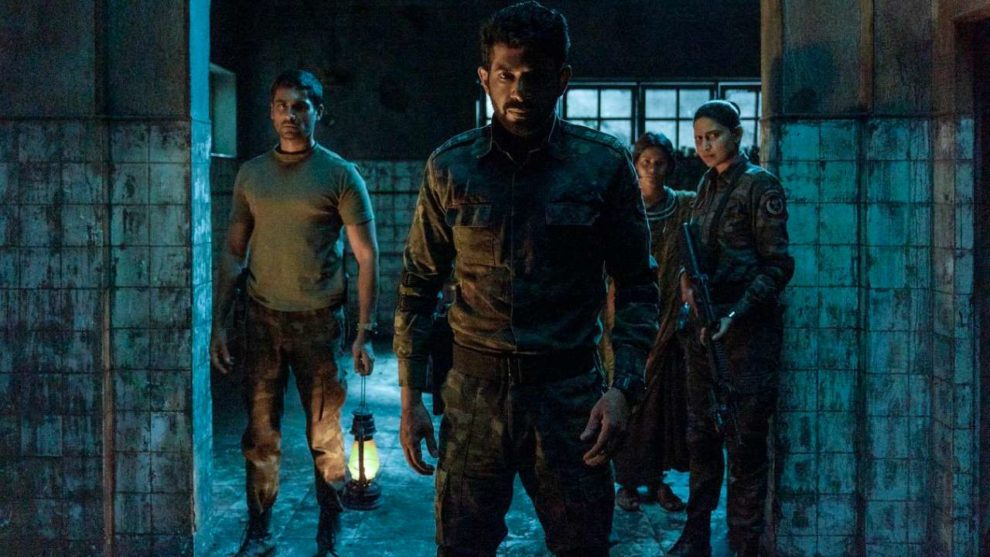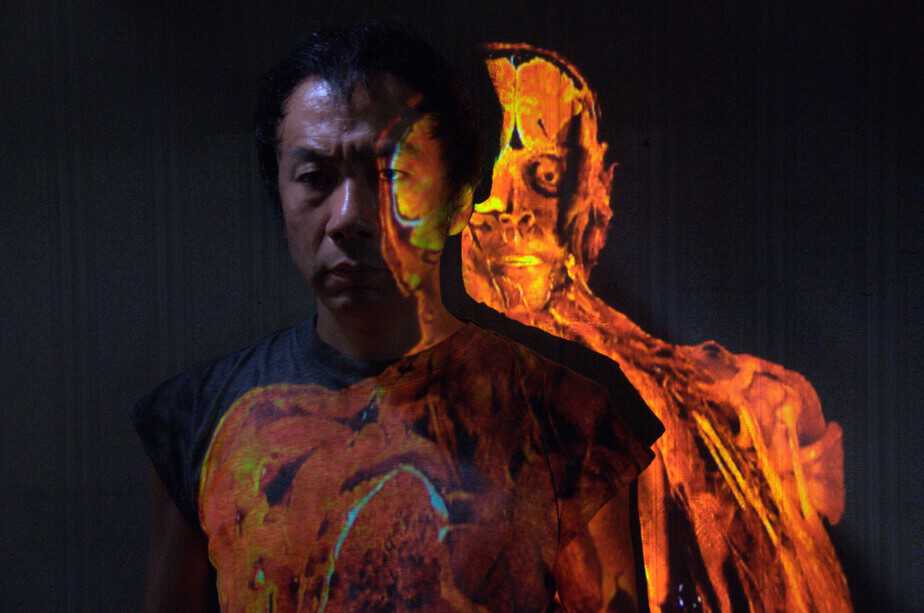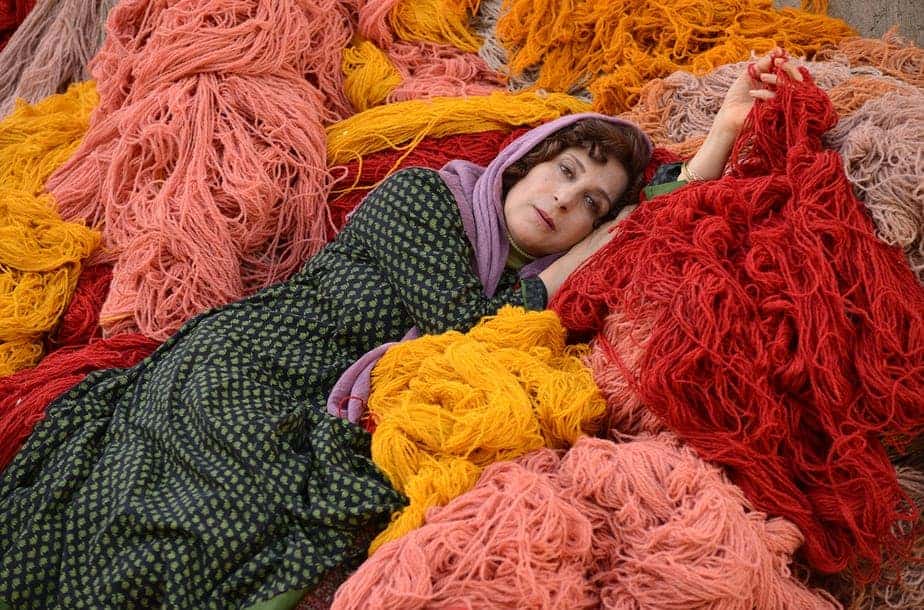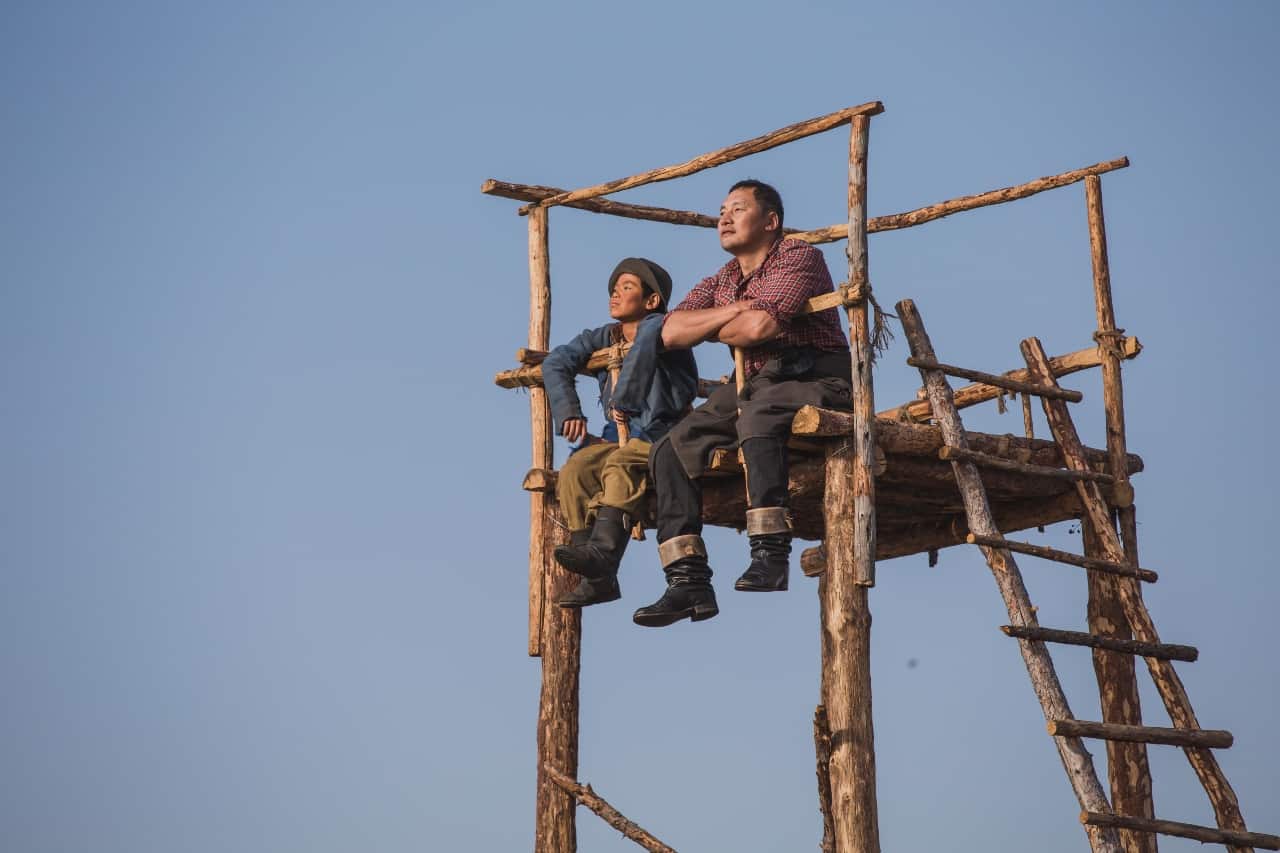“Betaal” – original Netflix mini-series influenced by local legends and myths, but also by the forgotten god of dread described in Somdev Bhatt's storybooks from 11th century, is the first proper Indian attempt at the zombie genre. Spiked with social criticism, the show offers more than just snapping jaws of the undead, who happen to be the former British colonialists.
The Volunteers battalion that served under the command of lieutenant colonel John Lynedoch during the Independence War of 1857 is trapped in a mountain passage built a long time ago by the English, and the flesh-thirsty men are held under control by rituals performed by local villagers, under the guidance of their sorceress. In the very opening scene, people are seen praying to lord Betaal to keep his slumber, and their peace intact.
Solidly plotted horror elements are present from the very beginning of the series and as many of them are recognizable from the standard genre film tropes, original ideas melt in, mainly in terms of the representation of the undead. Since George A. Romero's “Night of the Living Dead” (1968) when the Haitian understanding of zombies was appropriated by the western culture and turned into a standard of the flesh-thirsty menace with the ability of infecting the living by a simple scratch or a bite, the trope was repeating itself. The mute, slow-moving rotting corpses were creatures steered by one primal instinct only (food), until Romero himself decided that this wasn't enough. His “Land of the Dead” (2005) marked the end of the brainless walkers by introducing the character of Big Daddy Zombie, played by Eugene Clark .Two years prior, another significant change took place when Danny Boyle made us shiver in anguish in “28 day Later”, his post-apocalyptic horror set up in London, sending the horde of zombies through the city in manic speed. Paul W.S. Anderson's “The Resident Evil” franchise was built on the same idea, but the creatures were also lacking the intellectual capability to communicate.
“Betaal” doesn't play along these lines, and the transformation from a living person to a zombie happens through the corruption of personality, letting the infected keeping their fine motor skills and thinking process intact, despite being influenced by the voice of Betaal. Using any kind of weapon doesn't impose any problem to them, likewise – the sweet-talking method to get out of the difficult situation. Zombies (if not emaciated, 3 centuries old creatures) look just like any of us, when equipped with a decent pair of sun-glasses and dressed properly to hide their infected wounds.
All four episodes play during one single night that goes very south when a squad of soldiers gets sent to the alleged place of “Naxal” terror, to cleanse them out and make space for “progress” and “prosperity” of the nation, helping the Surya constructions to re-open the passage through the mountain and build the highway. Manipulated by their corrupt commander-in-chief Tyagi (the fantastic Suchitra Pillai), a hard-boiled soldier famous for fighting left-wingers and human right activists publicly on TV, they are led to commit atrocities, not suspecting a scam.
Attacked for its “shallowness” by a handful of critics on Rotten Tomatoes, “Betaal” is expected to solve the problems of the globalized, capitalist world in four episodes and to find that “je ne sais quoi” that will make it relevant in the TV genre domain. Like we ever had that in “The Walking Dead”, a show that George Romero denied with every atom of his body, but which nevertheless was adored by the “certified-fresh” critics.
If there is anything to complain about, it's the special effects department with its outdated technique in presenting the “originals”. With a recognizable nod to John Carpenter's “The Fog”, one wishes the eyes of the Brits were less “the creepy toy we got as kids, with the red glass-eyeballs-glowing-stare”, and more of the 21st century scarier than hell things.
The show is packed with strong female characters, including the mercenaries, and this might also be one of the reasons for the show's harsh critique. Not sexually objectified, makeup-free, in decision-making positions and tough (one of them even severely disfigured), the female leads of “Betaal” steer the narrative with a mighty force.
The capitalist destructive power voiced in the character of the business entrepreneur Ajay Mudhalvan (Jitendra Joshi), a ruthless, spineless man ready to sacrifice his own daughter Saanvi (Syna Anand) to get his riches secured by Betaal, is ridiculed by co-directors Patrick Graham & Nikhil Mahajan. Ajay's wife Shakuntala (Meenal Kapoor) calls the soldiers of her husband's “lapdogs”, and the treatment (including beatings) she and her daughter get from Ajay, do not play along the tunes of “it happens, because it's India”. Unless, you choose not to recognize it.
We finally come to “the man”, according to Rotten Tomatoes critics, “the dude” the series rotates around. Vineet Kumar plays the traumatized soldier Vikram Sirohi, a guy so harmed by his previous killings, that the flashbacks make him paralyzed with fear of harming yet another human being. “Everything but a child” is his motto, until the zombie apocalypse strikes.
Offering a great support to the series is the original score by Naren Chandavarkar and Benedict Taylor (also composers of Patrick Graham's previous Netflix horror series “Ghoul”), the music embraces the story with its energized power.















